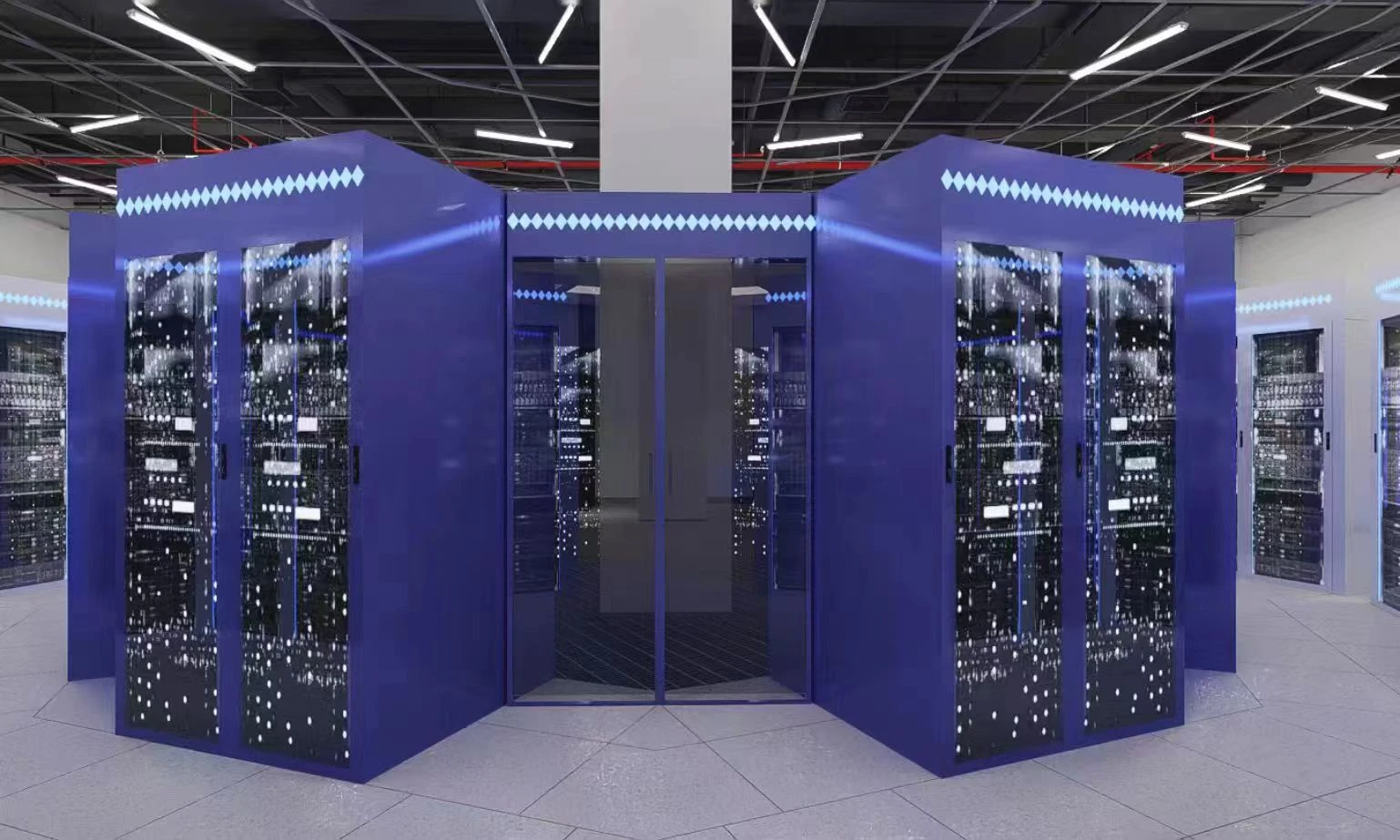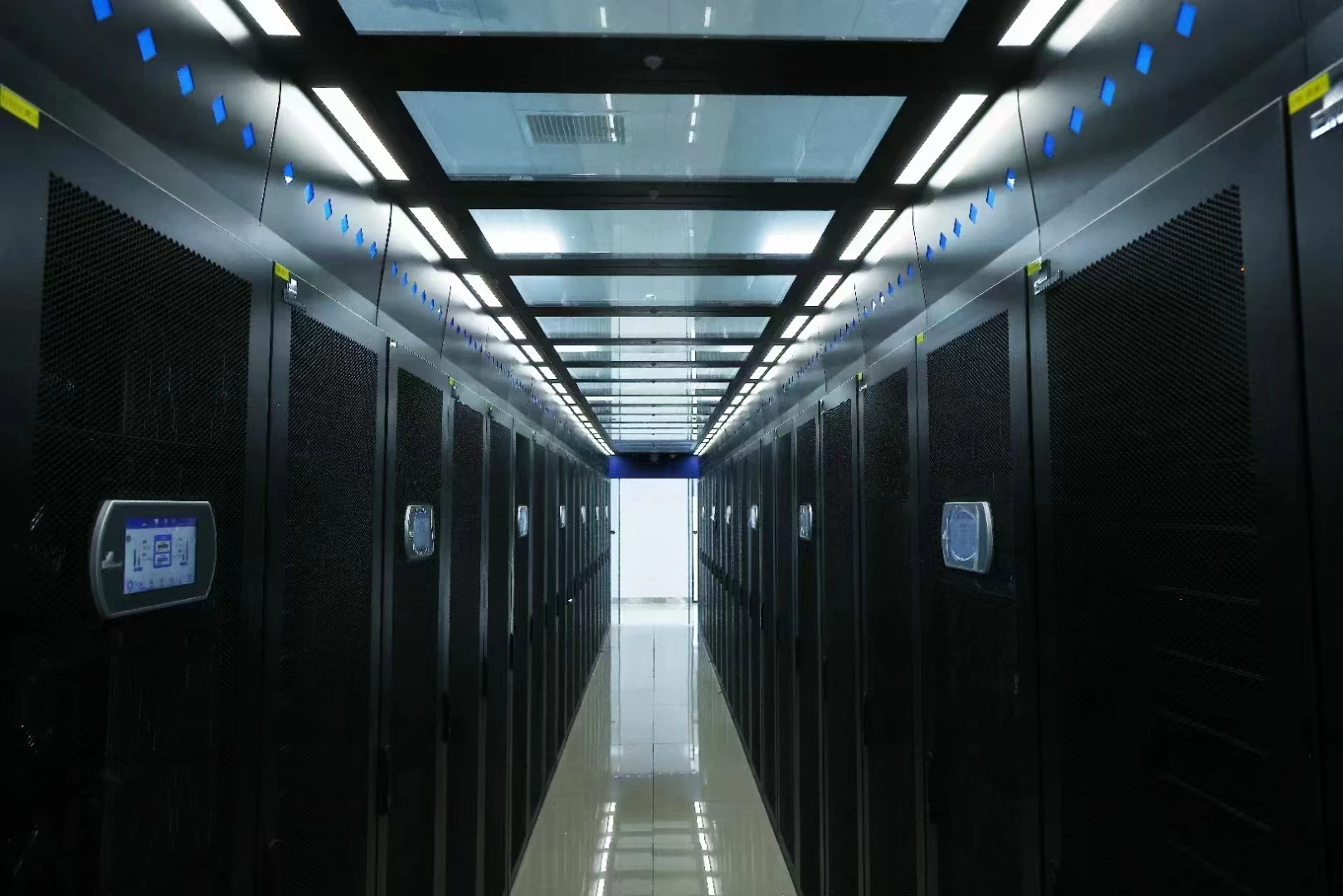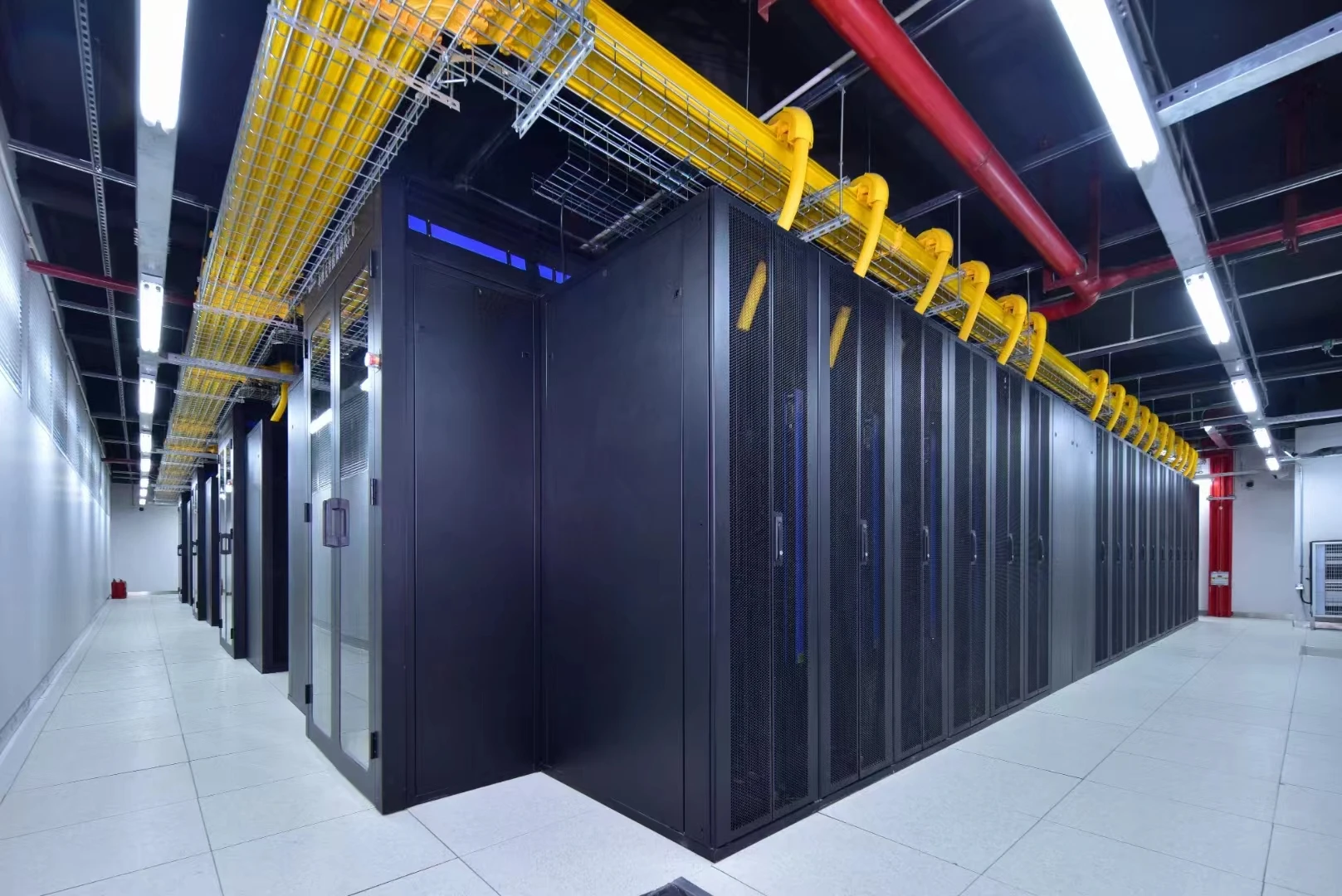
7 月 . 27, 2025 20:01 Back to list
Smart Energy Management System for Efficient Building Control
The global drive for sustainable, intelligent infrastructure has pushed energy management system (EMS) technologies to the forefront of digital transformation in energy-intensive facilities. From manufacturing to utilities and data centers, more stakeholders are investing in advanced energy control systems and integrated energy monitoring and management system solutions. This comprehensive guide explores technological evolution, underlying parameters, and hands-on applications, illustrated by the high-end Micro module computer room (energy management system), with detailed comparisons, process flows, and real-world cases supported by rigorous industry data.

1. Industry Trends in Energy Management Systems (EMS)
Over the past decade, the energy management system market has exhibited a CAGR of 12.6%, reaching over $42.8 billion in global market value by 2023 (MarketsandMarkets). This surge is attributed to heightened regulatory pressures, integration of IoT, and demand for real-time data analytics.
Key drivers include:
- Demand for energy-efficient operations in critical infrastructure.
- Growth in AI-based energy analytics for predictive consumption control.
- Adoption of cloud-connected energy control systems.
- Stringent international standards: ISO 50001, ANSI C12.
- Rise of edge/fog computing in distributed facilities.
According to Statista, the adoption rate of energy monitoring and management systems in industrial and commercial buildings has risen from 46% in 2017 to 68% by 2023, reflecting increased organizational alignment with ESG goals.
2. Core Technical Parameters of Energy Management Systems
| Parameter | Standard Value / Range | Industry Reference | Significance |
|---|---|---|---|
| Response Time | < 1 sec (real-time); 1-5 sec (aggregated) | IEC 61850-7-420, ISO 50001 | Ensures timely control & analytics feedback |
| Power Monitoring Accuracy | ±0.2% to ±0.5% | ANSI C12.20 / IEC 62053-22 | Improved precision in energy tracking & billing |
| Data Acquisition Channels | Up to 800 points/node | OEM Spec, IEC 61131 | Supports granular facility monitoring |
| Communication Protocols | Modbus TCP/IP, BACnet, OPC-UA, SNMP | IEC 61850/IEC 61158 | Integrates legacy & modern systems |
| Operational Temperature | -20°C to +55°C | ISO 16750, OEM Test Data | Ensures reliability in diverse settings |
| Data Retention / Cloud Sync | >3 Years Local, Real-time Cloud | SaaS Platform, GDPR Compliant | Supports reporting & compliance audits |
3. Global EMS Technology Trend Analysis (2018-2024)
Data source: MarketsandMarkets, Statista, OEM reports.
4. Micro Module Computer Room: How Energy Management Is Revolutionized
Micro module computer room is an integrated solution that combines digitalized energy management system with modularized server, cooling, and power structures. Designed for high-reliability scenarios—such as critical IT, telecom, and industrial automation—the system ensures seamless operations with minimal carbon footprint.
Key Features:
• Modular structure with state-of-the-art energy control systems.
• High-precision real-time monitoring & predictive maintenance.
• REDUNDANT UPS, lithium battery, AI-driven cooling optimization.
• ISO 9001, ISO 50001, CE, and RoHS certified.

- Material Selection
- Chassis: high-grade cold-rolled steel, anti-corrosive epoxy powder coating, rated ≥ 50,000h service life
- Electronics: PCB with RoHS-compliant copper, gold immersion finish
- Fabrication
- Frame: CNC laser-cutting & robotic welding (±0.1mm accuracy)
- Panel Molding: Precision press forming
- Assembly
- Module Interconnects: Plug-and-play DC/AC rails, quick-connect bus
- Sensors: Digital CTs, PTs, IoT gateways
- Quality Control & Testing
- Electrical: ISO 50001-compliant energy accuracy test, surge withstand, insulation up to 3kV
- Mechanical: ANSI/BIFMA x5.4 durability test, salt spray corrosion tests (720h)
- System Integration
- Commissioning: Live data acquisition, 4-step functional verification
- Integration: With BMS/SCADA via BACnet/IP, OPC UA
- Site Acceptance & Ongoing Service
- Remote alerts, annual recalibration, extended warranty (up to 5 years)
The above procedure ensures the energy monitoring and management system inside the Micro module delivers industry-leading durability, safety, and energy efficiency—making it ideal for mission critical deployments and remote, harsh industrial environments.
5. Micro Module Computer Room: Spec Sheet & Competitive Comparison
| Feature | Micro Module Computer Room | Conventional Data Room | Modular Cabinet |
|---|---|---|---|
| Rated Capacity | 6-400 kVA modular | ≥500 kVA, fixed | 3-60 kVA, scalable |
| Energy Efficiency (PUE) | 1.15-1.35 | 1.7-2.1 | 1.40-1.65 |
| Metering Accuracy | ±0.2% | ±1.0% | ±0.5% |
| Integration | AI-based controls, plug-and-play | Manual, legacy systems | Partial automation |
| Installation Time | 20-30 days/site | 3-6 months | 15-30 days |
| Material/Frame | CRCA Steel, IP54/66 rated, powder-coated | Mild steel, IP21/IP31 | Aluminum, IP44 |
| Certification | ISO 50001, ISO 9001, CE, RoHS | Local standards | Partial ISO |
| Typical Service Life | >15 years | 8-10 years | 4-8 years |
6. Engineering Insights: Materials, Workmanship, Standards
- Enclosure: Cold-rolled carbon steel (CRCA), Epoxy powder coating (ISO 12944 compliant)
- Circuit boards: FR-4 glass epoxy base, gold immersion connectors (RoHS approved)
- Cables: LSOH, flame-retardant, UV proof
- Chassis and frame: Laser CNC precision cutting (accuracy ±0.1mm)
- Connectors: Automatic crimping & ultrasonic welding for low-resistance junctions
- Surface: 3-stage degreasing, phosphate pre-treatment per ISO 9001
- Energy accuracy: per IEC 62053-22, achieved ±0.2% in field tests
- System safety: Type-tested per IEC 61439 (up to 4000A), insulation up to 3450V
- Corrosion: Salt spray per ISO 9227, min. 720 hours
- Lifetime simulation: 15-year thermal cycling under 80% max load
- Certifications: ISO 9001, ISO 50001, CE, FCC, RoHS
7. Application Scenarios & Industry Case Studies
Use Case 1: Smart Petrochemical Plant
- Challenge: Reduction of 23% energy wastage in critical load areas.
- Solution: Micro module computer room with AI-based energy management system deployed; real-time sensors and data-driven throttling.
- Outcome: Annual savings > $470,000, PUE dropped from 1.87 to 1.29. 9-month ROI. Plant meets ISO 50001 certification post-upgrade.
- Challenge: Frequent outages and overconsumption in rural pump houses.
- Solution: Modular system, edge monitoring nodes, centralized energy control systems, and automated alerting.
- Outcome: Power reliability improved by 16%, OPEX reduced by 19%. All alarms resolved under 11 minutes.
- “Installation was completed in three weeks, with full remote monitoring from day one. Sustained energy savings exceeded 19% in year one.” – Facility Director, Fortune 500 Chemical Group
- “The combination of real-time analytics and modular flexibility set new standards for us. Highly recommend for any mission-critical application.” – Data Center IT Lead

8. Authority, Certification, and Vendor Benchmarks
-
Certifications Achieved:
ISO 9001 (Quality), ISO 50001 (Energy), CE, UL62368, RoHS. Annual audit for regulatory compliance. -
Industry Benchmarks:
Key partners—Siemens, Hitachi, Schneider, ABB deploy similar modular EMS in critical projects (refer: Siemens Whitepaper, IEC 61850 case studies). -
R&D & Service:
30+ years in intelligent power engineering, 40+ full-time technical experts, patent portfolios in IoT-based energy control. -
Reference Project:
Used by 200+ organizations worldwide; referenced in industry journals (EnergyTech, Data Center Knowledge).
9. Professional FAQs: Energy Management Systems & Micro Modules
Q1: What is the main structural material for your Micro module computer room?
A: We use cold-rolled carbon steel (CRCA) with anti-corrosive epoxy powder coating, ensuring ≥50,000 hours lifespan and superior corrosion resistance—complying with ISO 12944.
Q2: Which measurement accuracy can your EMS achieve, and to what standard?
A: Our energy management system is tested to ±0.2% accuracy (IEC 62053-22, ANSI C12.20), supporting precise allocation and billing.
Q3: What is the standard installation timeline?
A: Micro module systems are typically installed and commissioned within 20-30 days per site, thanks to plug-and-play modules and rapid bus architecture.
Q4: Which communication protocols are supported?
A: Supports Modbus TCP/IP, BACnet/IP, OPC UA, SNMP and integration with third-party BMS/SCADA.
Q5: What kind of environmental standards do the products meet?
A: Our systems are type tested for IP54/IP66 ingress protection, operate reliably in -20°C ~ +55°C, and meet RoHS, REACH directives for environment safety.
Q6: Is remote and mobile monitoring supported?
A: Yes, real-time monitoring is available via encrypted web and mobile portals. Automated alarms comply with GDPR & ISO 27001 info security standards.
Q7: What warranty and after-sales options are available?
A: We offer standard 2-year warranty (extendable to 5 years), 24/7 technical hotline, and periodic on-site inspections (energy management system product support page).
10. Delivery, Warranty & Customer Support Commitment
- Lead Time: Standard module delivery within 30 working days after order confirmation. Custom projects: 45-60 days, including factory acceptance test (FAT).
- Warranty: 24 months (parts/labor) from commissioning; optional extension to 60 months.
- Support: 24/7 technical hotline, live monitoring, customer training, annual maintenance contracts.
- Spare Parts: Guaranteed stock availability for 10 years from shipment.
- Documentation: Detailed product manuals, test certificates, and compliance reports provided with each delivery.
- Onsite Service: Provided globally, covering commissioning, periodic audits, calibration and upgrades.
11. Conclusion & Authoritative References
As organizations navigate the complexities of Industry 4.0 and rising ESG expectations, modular solutions like the Micro module computer room — featuring a best-in-class energy management system — have become the benchmark in sustainable, resilient, and scalable facility operations. Combined with certified engineering, robust support, and advanced analytics, these systems futureproof IT and industrial infrastructure for years to come.
[1] International Energy Agency. (2023). "Digital Energy Management, Trends & Impacts." IEA Research Report
[2] MarketsandMarkets. (2023). "Global Energy Management System Market Size & Forecast." marketsandmarkets.com
[3] Siemens. (2022). "Modular Data Center Solutions for Energy Efficiency," Siemens Industry
[4] "ISO 50001 & Energy Monitoring Best Practices", Energy Manager Today, Industry Journal
This is the last article
-
Smart Energy Management System for Efficient Building Control
NewsJul.27,2025
-
Advanced Energy Management System for Smart Efficiency
NewsJul.26,2025
-
Advanced Energy Management System EMS for OEM | Optimize Efficiency
NewsJul.25,2025
-
High-Efficiency Energy Storage System for OEM Solutions
NewsJul.24,2025
-
Intelligent Energy Management for Efficient Power Use at Home
NewsJul.23,2025
-
Advanced Energy Management System EMS OEM Solutions
NewsJul.22,2025























